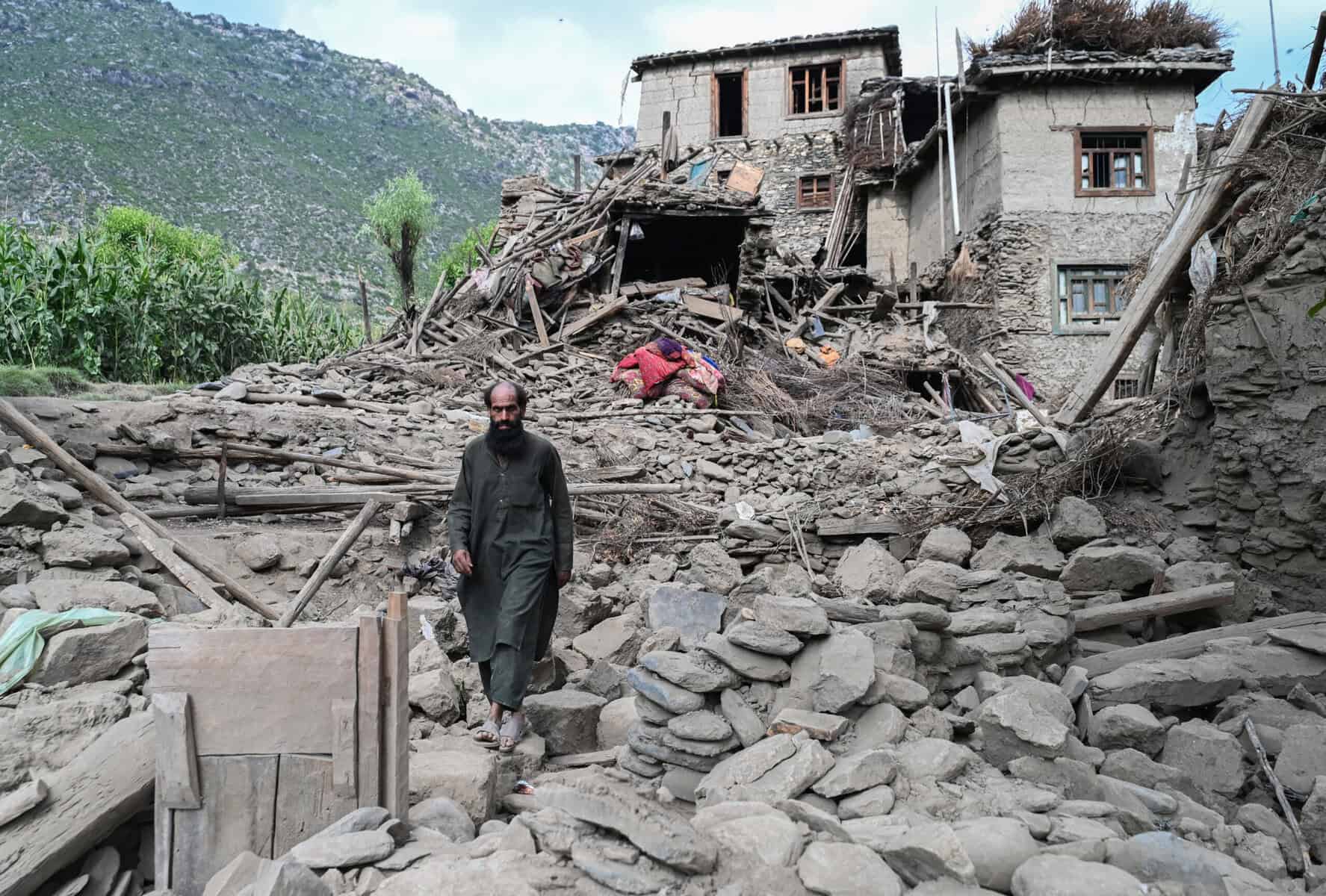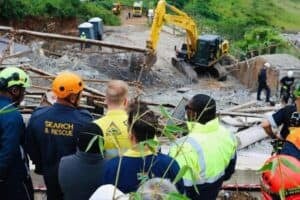Aid organisations warn that dwindling funding is crippling rescue and relief efforts.

A powerful earthquake that struck eastern Afghanistan at the weekend killed more than 1400 people and injured thousands more, the Taliban government said on Tuesday, making it one of the deadliest to hit the country in decades.
The casualty toll has mounted steadily since the 6.0-magnitude earthquake hit late Sunday night, devastating remote areas in mountainous provinces near the border with Pakistan.
Afghanistan is one of the poorest countries in the world, with dwindling aid since the Taliban seized power in 2021 undermining its ability to respond to disasters.
More than 1 411 killed
Chief Taliban government spokesman Zabihullah Mujahid said on social media platform X on Tuesday that 1 411 people were killed and 3 124 people were injured in the hard-hit province of Kunar alone.
Another dozen people were killed and hundreds injured in neighbouring Nangarhar province.
The earthquake could affect “hundreds of thousands”, said United Nations humanitarian coordinator for Afghanistan Indrika Ratwatte.
Rescuers searched through the night and all day for survivors in the rubble of homes flattened in Kunar, where more than 5 400 houses were destroyed, government spokesman Hamdullah Fitrat said on X.
Many of the worst-affected areas were still unreachable by road, but emergency facilities were being set up and multiple countries had announced they would provide aid, Fitrat said.
Rescuers struggle to reach remote areas
The European Union said it was sending 130 tonnes of emergency supplies and providing one million euros to help victims of the deadly quake.
ALSO READ: Afghanistan earthquake kills more than 800, flattens villages
The bloc has become one of the key aid donors to Afghanistan after the United States — previously the country’s largest aid provider — cut all but a slice of its assistance after President Donald Trump took office in January.
The aid cuts risk impeding the response to the earthquake, sector experts told AFP, in a country already facing one of the world’s worst humanitarian crises after decades of conflict.
“The scale of need far exceeds current resources,” the International Federation of Red Cross and Red Crescent Societies said in a statement, noting that funding cuts had hit humanitarian air services, “limiting access to remote communities”.
Emergency workers struggled to reach mountainous areas and villagers joined the rescue efforts, using their bare hands to clear debris from mud and stone homes built into steep valleys.
Obaidullah Stoman, 26, who travelled to the village of Wadir to search for a friend, was overwhelmed by the level of destruction.
“I’m searching here, but I didn’t see him. It was very difficult for me to see the conditions here,” he told AFP.
“There is only rubble left.”
The dead, including children, were wrapped in white shrouds by villagers who prayed over their bodies before burying them.
ALSO READ: Deadly monsoon rains lash Pakistan, killing dozens
‘Whole house collapsed’
The earthquake epicentre was about 27 kilometres (17 miles) from Jalalabad, according to the US Geological Survey, and struck just eight kilometres below the Earth’s surface.
Such relatively shallow quakes can cause more damage, especially since the majority of Afghans live in mud-brick homes vulnerable to collapse.
Many of those living in the quake-hit villages were among the more than four million Afghans forced back to the country from Iran and Pakistan in recent years, many coming through the Torkham border crossing in Nangarhar province.
Rahmatullah Khaksar, who heads the emergency ward at a hospital in Jalalabad, Nangarhar’s provincial capital, said they had received 600 injured since Sunday night.
“Most of the patients were trauma patients. They were hit on the head, back, abdomen and legs,” he told AFP, adding they had cleared a ward for unidentified patients “so they will stay there until they find their families”.
Afghanistan’s history of deadly earthquakes
Afghanistan is frequently hit by earthquakes, especially in the Hindu Kush mountain range near the junction of the Eurasia and India tectonic plates.
Western Herat province was devastated in October 2023 by a 6.3-magnitude earthquake, which killed more than 1 500 people and damaged or destroyed more than 63 000 homes.
A 5.9-magnitude quake struck the eastern province of Paktika in June 2022, killing more than 1 000 people and leaving tens of thousands homeless.






